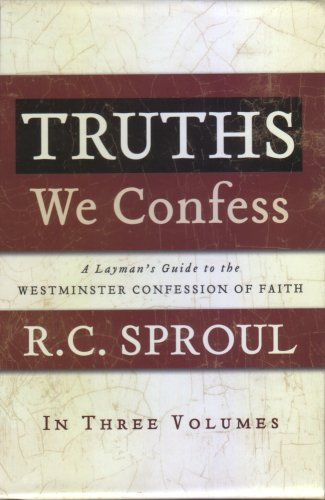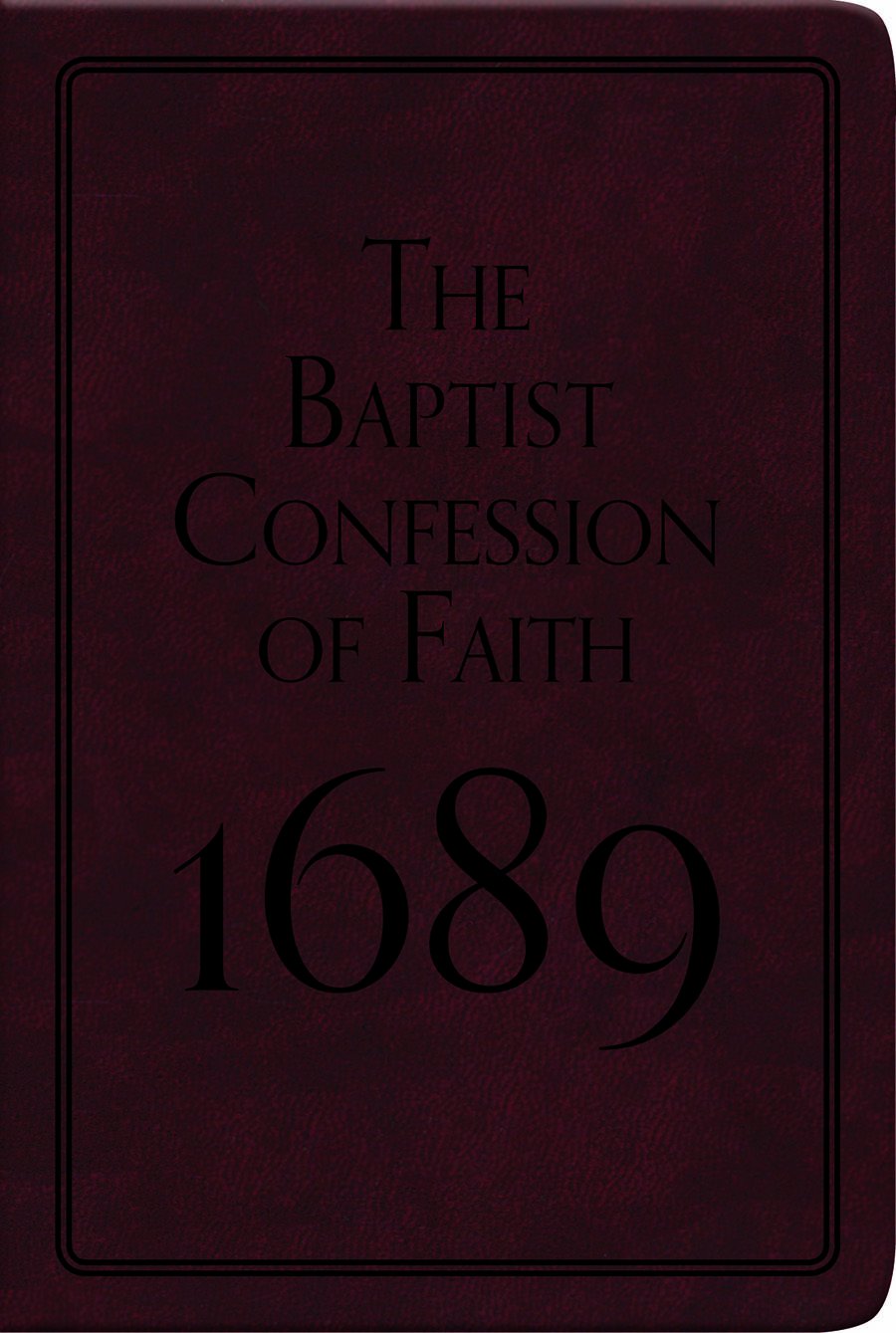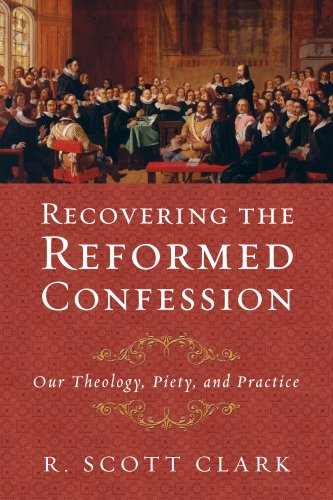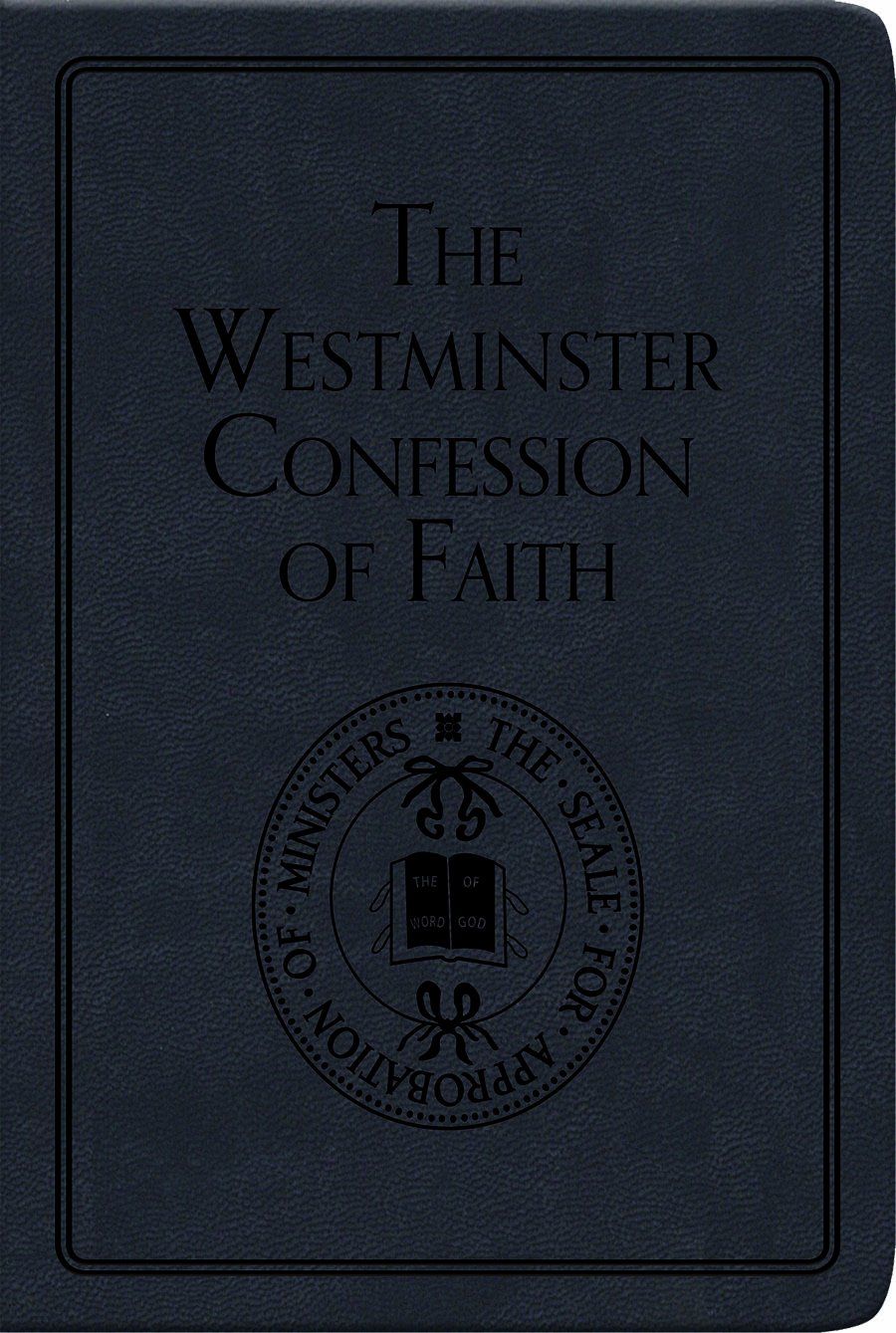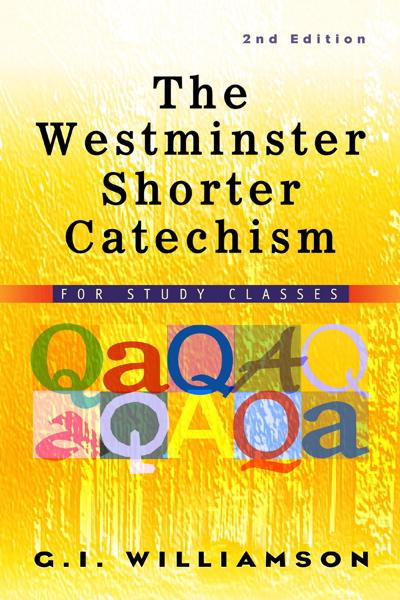The effort to derive positive benefit from confessions seems so strange to some today that it can hardly be distinguished from the scary “C” word, “creedalism.” Though there are valid historical and practical distinctions between the use of statements of faith as a creed and their use as a confession, those distinctions hardly apply to the current fear of either “creeds” or “confessions.”
Baptist Objections to Creeds
The Baptist marriage to confessional theology has endured many an appearance at divorce court. Now bloody and blue Baptists are claiming to have been battered so thoroughly that a complete separation is necessary for survival. Others claim that the marriage never took place. The Baptist historian Thomas Armitage clearly expressed one way of thinking about creeds.
That the book called the Bible is given by the inspiration of God, and is the only rule of Christian faith and practice. The consequence is, that we have no creeds, nor catechisms, nor decretals, which bind us by their authority. We think a creed worth nothing, unless it is supported by Scriptural authority, and if the creed is founded on the word of God, we do not see why we should not rest on that word which props up the creed; we prefer to go back directly to the foundation itself and rest there alone. If it is able to sustain us, we need nothing else, and if it is not, then we cannot rest upon a creed to support us when that creed has no support for itself.[1]
The preface to the Baptist Faith and Message of 1963 claims that its writers acted upon the principle of a “Baptist aversion for all creeds but the Bible.” And of course there is John Leland’s exclamatory question, “Why this Virgin Mary between the souls of men and the scriptures?” followed by a statement embodying another suspicion of confessions: “Confessions of faith often check any further pursuit after truth.”[2] The union of Separate and Regular Baptists in Virginia was hindered briefly because of the Separates’ fear that a confession might usurp “a tyrannical power over the conscience.”[3] In addition, the Anglican practice of granting confirmation upon the memorization of the Prayer Book catechism has tended to make “creedalism” a virtual synonym for nominal Christianity.[4]
In summary, four objections to the serious use of confessions, or creeds, have appeared historically and continue to appear today. First, in the spirit of Thomas Armitage, many sincerely urge in opposition to confessions the principle of sola scriptura. Second, some argue that the use of confessions will give a false confidence that scripture truth is exhausted by the confession and thus stunt true growth in the knowledge of the Scriptures. A person will feel that knowledge of the confession is enough and will consequently isolate himself from the dynamic of the living Word of God. Third, a confession can be used in such a way as to repress genuine searching, give artificial answers to questions, and threaten those who are in a stage of inquiry, thereby tyrannizing the tender consciences of believers. Fourth, mental assent to the doctrines of the confession has often served as a substitute for true conversion and has led to dead orthodoxy.
Objections Generally Considered
Stewardship of our spiritual heritage requires that these four areas of concern be addressed with candor and seriousness, for they have not arisen in a vacuum. Any use of confessions that does indeed usurp the place of Scripture should be rejected, or at least corrected, immediately. In addition, no place should be given to a confession as an exhaustive synthesis of biblical truth. Always we must confess, “God has more light yet to break forth from his most holy Word.” Neither should the confessional ideal be allowed to tyrannize the conscience of any person. A sensitive and balanced use for education and discipline need not thwart earnest inquiry or repress anyone’s conscience. Finally, any deleterious effects that confessionalism would have on one’s understanding of the true nature of saving faith or the absolute necessity of the new birth are much to be lamented and scrupulously avoided. Some who are convinced of the power and clarity of the gospel point to historical manifestations as evidence of these tendencies in the use of confessions. They must be shown that what they fear is more the product of non-confessionalism than confessionalism.
Second, we contend that Baptists have always recognized and avoided these dangers. Since these are abuses, they are not considered essential to the real strength of confessions. Most of them arise from the use of confessions in an establishmentarian situation. The union of church and state brings many more evils to the church than just the abuse of confessions. The abuse of Scripture, the abuse of law, the abuse of the state, the abuse of the church, and the abuse of the penal system all result from establishmentarianism. The abuse, however, does not call for the elimination of any of those institutions, but does require their purification from the sinful awkwardness of the church/state union. This historical reality explains John Leland’s quip, “It is sometimes said that hereticks are always averse to confessions of faith. I wish I could say as much of tyrants. “[5]
A third general observation about these objections points to the tendency we have to invest power in any study help or authority figure. The development of the doctrine of papal infallibility shows how far this abuse can be carried. On a more diminished scale but in accordance with the same principle one may observe Sunday School teachers placing greater confidence in the word of the teachers’ quarterly than in the clarity of the Word of God. But neither of these abuses means that we should eschew biblical submission to a minister who is apt to teach or that we should reject commentary aid in understanding Scripture.
Objections Particularly Examined
Contra Sola Scriptura?
Now we must ask, “Does a conscientious use of a Confession of Faith usurp the rightful place of Scripture in one’s faith and practice?” If the confession were like the articles of the Council of Trent, we would have to say, “Yes.” The Council of Trent places unwritten tradition alongside Scripture as an authority and claims that the church alone (the pope) has the right to interpret Scripture. But Protestant confessions have virtually always displayed and defended the sole authority of Scripture and have resisted attempts to establish doctrines in any way except on its authority. Scripture quotations and Scripture proofs encourage the reader to examine the assertions of the confession in the light of those biblical texts.
In addition, the historical context of these confessions reminds us that their composers, above all men, would have no desire to produce something which would again hide the Word of God from the eyes of people. For example, a reading of the Confession of the Reformed Churches of France shows that a humble regard for the limits of Scripture governed the making of the confession. After affirming the doctrine of the Trinity as “decided by ancient Councils” the confession continues, “we receive and agree in all that was therein resolved, as being drawn from the Holy Scriptures, on which alone our faith should be founded, as there is no other witness proper and competent to decide what the majesty of God is but God himself.” The two natures of Christ calls for our approval because “we hold the Old and New Testaments as the only rule of our faith, so we receive all that is conformable to them.” Prayers for the dead are rejected because they detract from the death of Christ and “We deem it sufficient to hold by the pure doctrine of Holy Scripture, which makes no mention of all this.” Service to God must be done in simplicity for we are not allowed to “follow what may have been devised in the brain of other men, but to confine ourselves simply to the purity of Scripture.” Following human traditions produces such perversity of doctrine and practice “that we are the more confirmed in not passing the limits of Scripture.” The age of the Reformation produced a mountain of confessions; it also inculcated a deep, pure, and passionate commitment to the sole authority of Scripture.
The objection to confessions on the basis of their tendency to supersede the Scripture seems to me to be a chimera. It combines fictitious dangers with the worst features of a Christian communion which confessedly does not operate on the basis of sofa scriptura. In actuality, history demonstrates that those who value their confessions also give the most intense attention to Scripture and have the greatest regard for the purity and consistency of its doctrines. A loss in confidence in the inerrancy and consistency of the Bible naturally produces a skeptical attitude toward confessions of faith.
A radical example of this tendency can be seen in Edward Farley’s conviction that we must “refuse to make anything human and historical a timeless absolute, dwelling above the flow of contexts and situations.” And with what example does he provide us of that which is “human and historical?” “One refuses to give this status of the timeless and the unconditional to one’s denomination, to one’s confessions, to one’s heritage, even to one’s Scripture.” Later Farley informs us that “God might be salvifically working through the communities of other religious faiths, that Buddhism, Hinduism, Judaism, and Native American religions are genuine faiths, and that because they are, we can learn from them even as they might learn from us.”[6]
If Farley is the prophetic voice for anti-confessionalism, we must see clearly that its driving force is the loss of any confidence in human knowledge of absolutes. Not only must the confession fall away, Holy Scripture must follow, and eventually any claim to the uniqueness of redemption by the crucified Christ must be called arrogant and narrow-minded. It appears to me that the mentality of non-confessionalism is much more dangerous and destructive than confessionalism has ever been.
Exhaustive Knowledge Assumed?
“Confessions of faith often check any further pursuit after truth.” I have often wished that I could ask John Leland in person what he meant by that. He could mean, as I have indicated above, that some treat a confession of faith as an exhaustive display of biblical truth. Or perhaps he means that truth in this pre-digested form encourages a lazy confidence or artificial absolutes which people fear to transgress, in either case enervating earnest attempts at biblical study and shutting off openness to the biblical arguments of others. When Baptists were persecuted in Virginia and Massachusetts, they were frequently harassed on the basis of violations of the Thirty-nine Articles or the Savoy Declaration and were not given a fair hearing for a defence of their biblical principles. This kind of uncritical and unbiblical confessionalism could very easily lie behind Leland’s criticism.
While being sensitive to this abuse, we must nevertheless affirm that advantages far outweigh this possible regrettable use of confessions. In Thomas Scott’s search for truth, his examination of the Thirty-nine articles challenged him to an unrelenting search of Scripture moving him from the classical heresies of Socinianism and Arianism to the orthodox doctrine of Christ. Eventually, the Reformation teachings of justification by faith and the doctrines of grace became an integral part of his theology.[7] No more eloquent defense of the principle of sola scriptura and of the expansive power of biblical study can be stated than Scott’s.[8] Yet this involved no denigration of confessions but exemplified the positive benefit of them.
Instead of truncating one’s grasp of truth, confessions and creeds are designed to expand it. Confessions, arising as they do out of the meshing between word and world, warn the reader of destructive interpretations of Scripture and teach him vital truths for which he should search in Scripture.
Violation of Conscience?
The third objection, that confessions tyrannize the conscience, suffers from an uncritical mixture of political theory and ecclesiology. J. P. Boyce referred to this tendency in Three Changes in Theological Institutions. He remarked that other denominations think that Baptists have no use for creeds because the principle of liberty of conscience “has forbidden the laying of civil disabilities upon those who have differed from us.” In fact, many Baptists have countenanced that opinion and misstated Baptist practice. Boyce says, “Suffice it to say that we have simply maintained that civil disabilities are not the means of punishing the offending members of the church of Christ,” and “The ideas which we have held of the spiritual nature of the kingdom of Christ have developed the principle of liberty of conscience and debarred us from the infliction of bodily punishment or the subjection of any civil disability.” We must likewise acknowledge that the church’s spirituality impresses on us the “necessity of excluding those who have violated the simplicity which is in Christ.”[9]
The complaint that creeds constitute an infringement on the rights of conscience was one of the peculiarities of Alexander Campbell. The logic of this was rejected by Robert Semple of Virginia who called such a view, among others, “contrary to those of Baptists in general.” One of the points of contention listed by Baptist associations that excommunicated the followers of Campbell was their claim “that no creed is necessary for the Church, but the Scriptures as they stand.”[10] Baptists certainly were not denying the sufficiency of the Scripture nor the necessity of liberty of conscience; but they clearly saw no inconsistency between these convictions and the use of a “creed.”
A confession used rightly is a wonderful pedagogical aid for all believers. Subscription to it need not be immediate, but can come by degrees. Some may be too young in the faith to understand its connections and importance. None, however, should oppose the confession. If after mature and thorough study a person concludes that he does not subscribe to the confession, he must determine if the matter is adiaphoristic with him or a matter of conscience. If it is matter of conscience, he may leave without anyone seeking to force him to do otherwise. In this way his conscience is not tyrannized and the unity of the church is not violated. A confessional stance for a church is neither divisive nor tyrannical. Instead, it honors, informs, and protects the conscience of all and aids in the production of unity.
Confessional Regeneration?
The identification of confessional orthodoxy with true Christianity is perhaps the most subtle and historically demonstrable danger of confessional Christianity. The period of Lutheran confessionalism in the 17th century produced strife and contention in German theology but little observable piety. Philip Jacob Spener mourned this condition and spoke of preachers who “have learned something of the letter of the Scriptures, have comprehended and assented to true doctrine, and have even known how to preach it to others,” but are personally unacquainted with the “true heavenly light and the life of faith.”[11] Spener affirmed the Lutheran Confessions and stated his theology in confessional terms. The major errors of the Pietistic movement he started, however, arose from the non-confessional enthusiasm of his followers.
New England Congregationalism wilted under the wrong use of confessional orthodoxy. This abuse became institutionalized in the Halfway Covenant of 1662. When Separate Baptists arose out of the Congregational New Light movement in the First Great Awakening, they had a legitimate fear of the abuse of confessions. This fear for a while hindered the union of Separate Baptists with the Regular Baptists. The Separates expressed resistance to “being bound and hampered by Articles and Confessions.” Eventually, union did occur on the basis of common confessions of faith.
The acceptance of confessions, however, by no means encourages loss of a theology of conversion. Who were more insistent on the new birth in their preaching than George Whitefield and Jonathan Edwards? Both were confessional. No one has ever produced a more experiential and conversionistic piece of divinity than Edwards’s “A Divine and Supernatural Light, Immediately imparted to the Soul by the Spirit of God, Shown to be both a Scriptural and Rational Doctrine.” In speaking of God’s sovereign, immediate work in regeneration Edwards concludes, “Yea, the least glimpse of the glory of God in the face of Christ doth more exalt and ennoble the soul, than all the knowledge of those that have the greatest speculative understanding in divinity without grace.”[12]
Edwards highlights the distinction between speculative knowledge and true grace brilliantly in his sermon “True Grace Distinguished from the Experience of Devils” when he says that “no degree of speculative knowledge of religion is any certain sign of true piety.” And again, “The devil is orthodox in his faith; he believes the true scheme of doctrine; he is no Deist, Socinian, Arian, Pelagian, or antinomian; the articles of his faith are all sound, and in them he is thoroughly established.”[13] These facts in themselves, however, do not make confessional Christianity dangerous any more than they make deism, Socinianism, or Arianism safe. The point is that the new birth is essential in any case, and nothing, even other things given by God, can be substituted for it.
Conclusion
None of the objections to confessional theology are to the point. Either they are directed against abuses or they arise from a latent, or often overt, skepticism. Abuses must be avoided and skepticism must be confronted. Confessions have a positive and edifying contribution to make to the life of the church and the individual Christian.
FOOTNOTES
1Thomas Armitage, “Baptist Faith and Practice” in C. A. Jenkyns, Ed., Baptist Doctrines (Chancy R. Barns: St. Louis, 1882), p. 34.
2Quoted in The Unfettered Word, ed. Robison James (Waco: Word Books, 1987), p. 139. This work is quoted in a preface to an article entitled “Creedalism, Confessionalism, and the Baptist Faith and Message” I wrote for this book. The editor seeks to present a case for the “noncreedal inclinations of Southern Baptists.” Some of those concerns are addressed in this article. With permission of the editor, Robison B. James, I hope to publish a slightly edited version of that article in the next issue of The Founders Journal.
3Robert A. Baker, A Baptist Sourcebook (Nashville: Broadman Press, 1966), p. 22.
4The Book of Common Prayer states:
So soon as children are come to a competent age, and can say in their Mother-tongue the Creed, the Lord’s Prayer, and the ten Commandments; and also can answer to the other questions of this short Catechism; they shall be brought to the Bishop. And every one shall have a God-father, or a God-mother, as a witness of their Confirmation.
6Edward Farley, “The Modernist Element in Protestantism,” in Theology Today XLVII. no. 2, pp. 141, 143. Farley is Professor of Theology, Vanderbilt University Divinity School. Two of the major burdens of Farley’s article are the “revisability of confessions” and the “historical approach” to Scripture. He would like to see many more modernist themes inserted into Presbyterian confessions and seems modestly congenial to the Confession of 1967 because of its recognition that the Scriptures are “nevertheless the words of men” and conditioned by the language, thought forms, and literary styles of different cultures and historical situations. It is obvious that he recognizes that strong confessionalism tends to retard relativistic concepts of Scripture.
7See Thomas Scott, The Force of Truth. The edition I have used also contains his sermons “Growth in Grace,” “Repentance,” and “Election and Perseverance.” (Halifax: William Milner, 1844) pp. 7-98. The book was first published in 1779. In the preface to the ninth edition published in 1812, Scott wrote, “[The Author] is more fully than ever confirmed in his judgment respecting the doctrine contained in it.” Scott’s account of the interaction between his reading of evangelical literature, his contemplation of the church’s creed, and his personal Bible study form one of the most interesting studies of theological pilgrimage with which I am acquainted. He confesses that the doctrine of the Trinity of coequal persons in the unity of the Godhead had been no part of his creed and that he had “quarrelled with the articles of the established church about this doctrine” (p. 53). The universal witness of the creeds, however, plus reading contemporary literature constrained him to careful examination and intense meditation on the Scriptures eventually leading him to adopt the doctrine of a “Trinity in Unity.” Likewise, his struggle toward the doctrines of grace involved the same interplay. Scott recalls:
Hitherto I had wilfuly passed over and neglected, or endeavoured to put some other construction upon, all those parts of Scripture which directly speak of them: but now I began to consider, meditate, and pray over them; and I soon found that I could not support my former interpretations. They would teach predestination, election, and final perseverance, in spite of all my wresting and expounding. It also occurred to me, that these doctrines, though now in disgrace, were universally believed and maintained by our venerable reformers; that they were admitted at the beginning of the reformation, into the creeds, catechisms, or articles of every one of the protestant churches; that our articles and homilies expressly maintain them; and consequently, that a vast number of wise and sober-minded men, . . . had upon mature deliberation, agreed, . . . that they were true, . . . useful, [and] . . . necessary articles of faith (p. 60).
8Ibid., pp. 80-86. At one point Scott says, “We are likewise too prone, in availing ourselves of the labours of critics and expositors, to resign up ourselves implicitly to their guidance, and to imagine that we have proof enough of our doctrines, if we can produce the sanction of some great name that has espoused and maintained them, without carefully examining whether they be right or wrong: but that is to pay that deference to the human interpretation, which is due only to the divine book commented on.”
9J. P. Boyce, “Three Changes in Theological Institutions,” in Timothy George, ed. James Petigru Boyce: Selected Writings (Nashville: Broadman Press, 1989) pp. 55, 56.
11Philip Jacob Spener, Pia Desideria (Philadelphia: Fortress Press, 1964) trans. Theodore G. Tappert, p. 46.
12Jonathan Edwards, “A Divine and Supernatural Light,” in The Works of Jonathan Edwards, 2:17. Italics mine.

